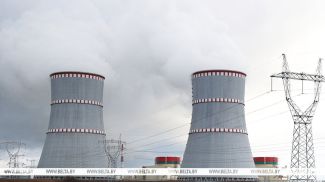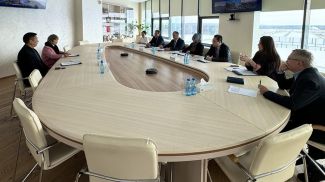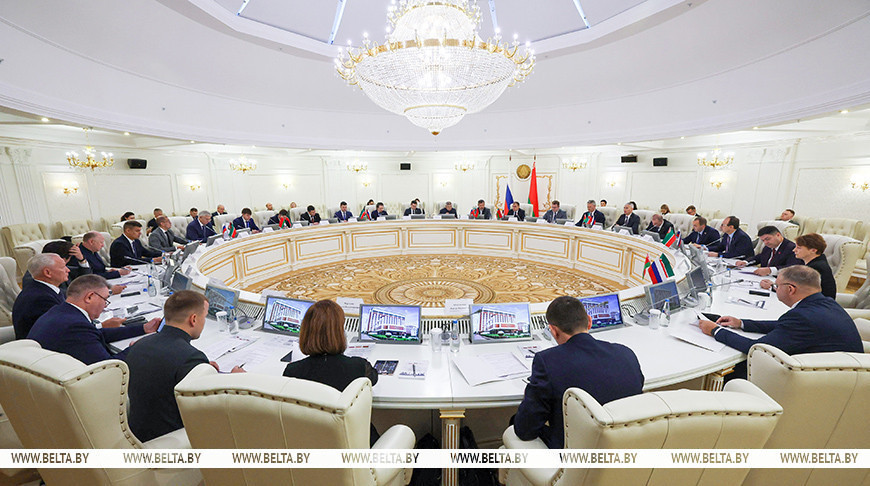
MINSK, 29 September (BelTA) – Belarus and Tatarstan of Russia aim to expand cooperation in mechanical engineering and petrochemicals. This was discussed during a meeting of the Belarus-Tatarstan working group on cooperation, BelTA has learned.
The working group was led by Belarus’ Deputy Prime Minister Viktor Karankevich and Tatarstan’s Deputy Prime Minister - Industry and Trade Minister Oleg Korobchenko.
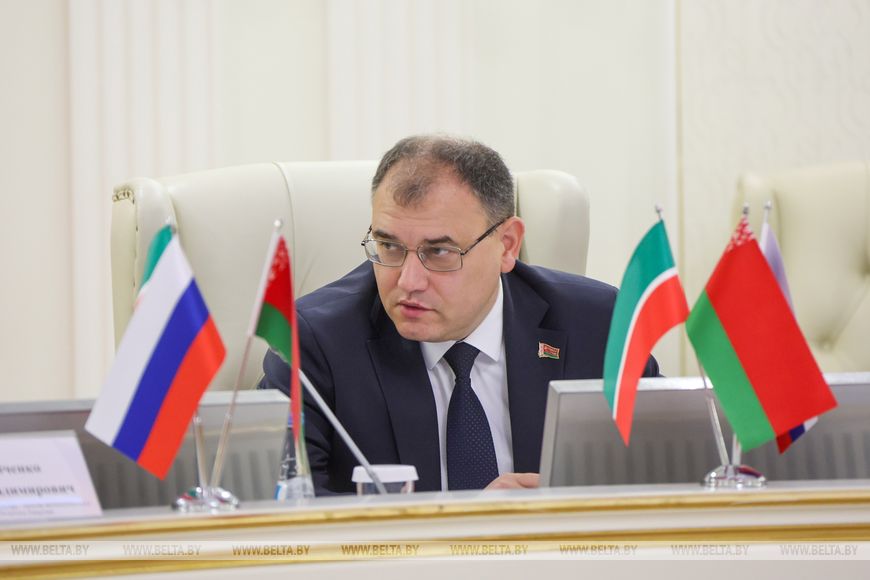
"Despite the challenging circumstances, cooperation between Belarus and Tatarstan is gaining momentum. There are new areas that allow us to move forward confidently, fulfilling the tasks set by our leaders to increase trade," Viktor Karankevich said in his welcoming remarks.
He emphasized that the current state of relations between Belarus and Tatarstan makes it possible to elevate cooperation to a brand new level. "Today, our task is to leverage each other's strengths for joint intensive development. I am confident that we can achieve an annual trade of $2 billion," Viktor Karankevich noted.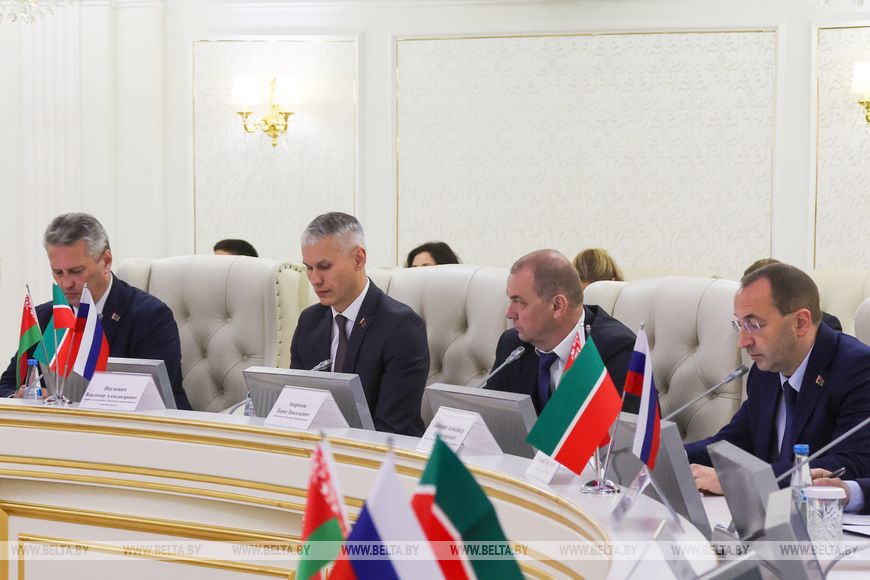
Among the key areas that can ensure positive momentum in bilateral trade, he highlighted industrial cooperation, which remains the foundation of interaction. "There are vivid examples of such cooperation: the partnership between Minsk Motor Plant and Tatarstan’s RariTEK Holding. Together, they are working on developing gas engines. BelAZ also purchases electric motors, generators, and other electrical and rubber products from Tatarstan manufacturers. Another example of cooperation is the program between Minsk Automobile Plant and KAMAZ, which aims to use common, locally produced components for assembling automotive equipment," Viktor Karankevich said.
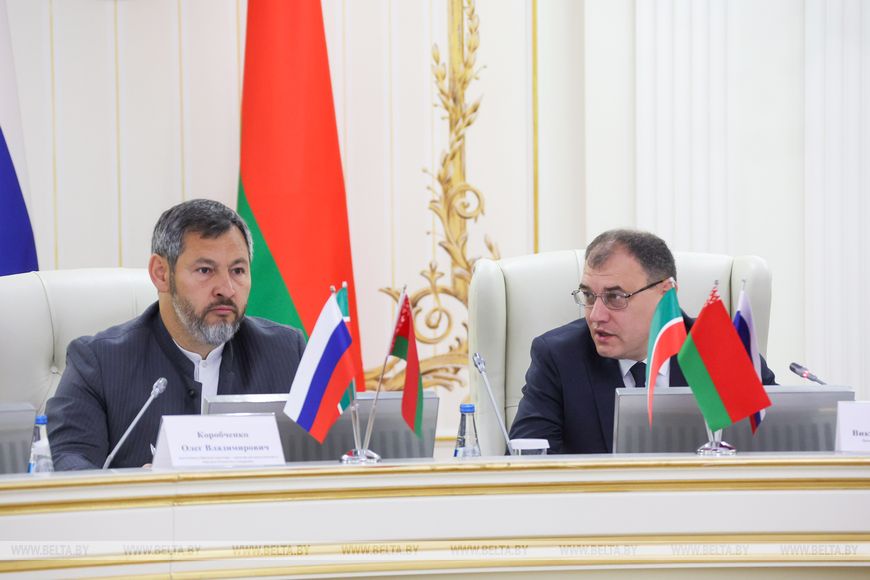
"The joint project of MTZ-Tatarstan Trading and Manufacturing Company serves as a hub for distributing products from many Belarusian manufacturers (MAZ, Gomselmash, MMZ) within the Republic of Tatarstan and other Russian regions," Viktor Karankevich added.
One of the promising areas of cooperation is the petrochemical sector. "We need to further explore new growth points in trade within this field through the implementation of joint innovative high-tech projects," he stressed.
Other important areas of cooperation include projects in aircraft manufacturing, where positive experience of cooperation has already been accumulated, deliveries of Belarusian passenger and agricultural machinery, road construction, and more.
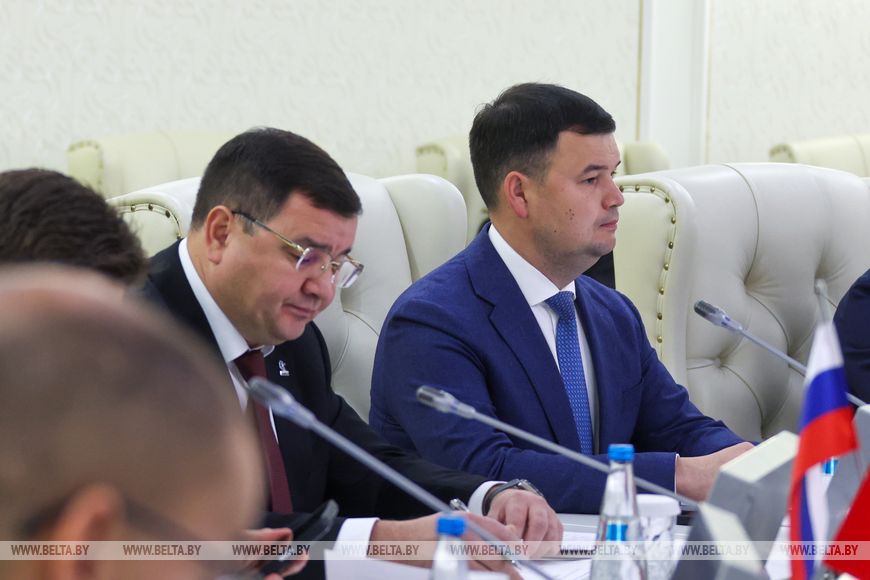
Oleg Korobchenko emphasized that in 2024, trade between Belarus and Tatarstan amounted to approximately $1 billion, and this year it significantly exceeds last year's figure. "In May, Belarus’ Prime Minister Aleksandr Turchin visited Tatarstan. Certain agreements were reached, and they must be fulfilled. All our companies that cooperate with Belarusian partners are currently represented at the international industrial exhibition INNOPROM. Belarus. The potential is great, and if our petrochemical enterprises begin cooperating at a higher level, we will achieve our goals," he said.
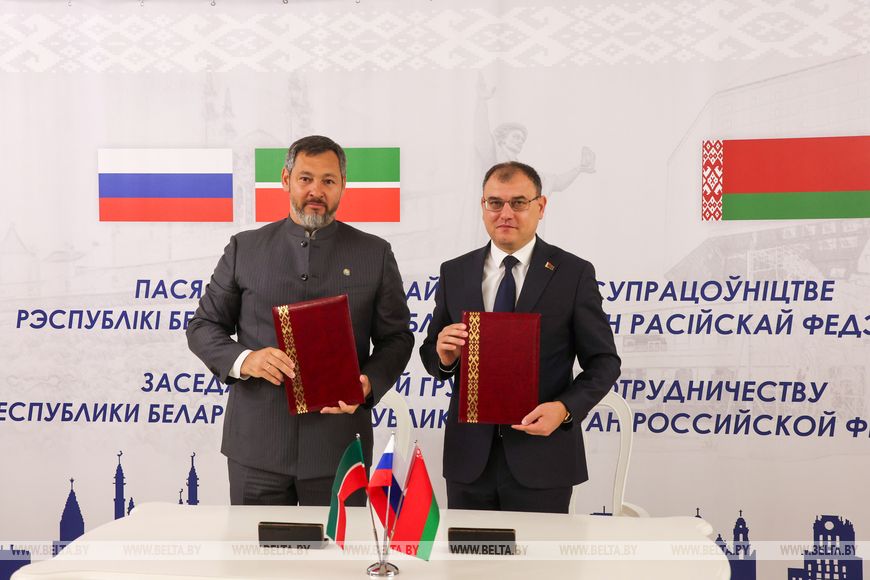
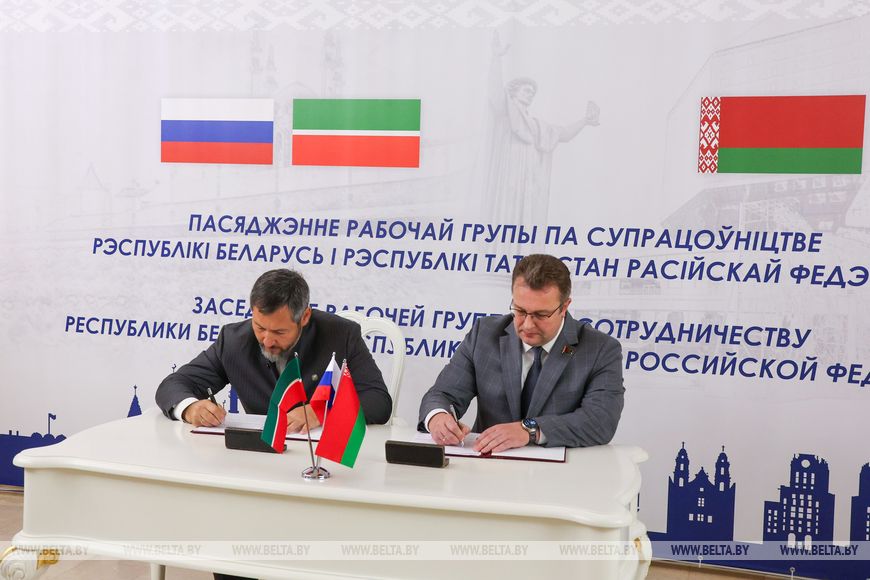
The working group was led by Belarus’ Deputy Prime Minister Viktor Karankevich and Tatarstan’s Deputy Prime Minister - Industry and Trade Minister Oleg Korobchenko.

"Despite the challenging circumstances, cooperation between Belarus and Tatarstan is gaining momentum. There are new areas that allow us to move forward confidently, fulfilling the tasks set by our leaders to increase trade," Viktor Karankevich said in his welcoming remarks.
He emphasized that the current state of relations between Belarus and Tatarstan makes it possible to elevate cooperation to a brand new level. "Today, our task is to leverage each other's strengths for joint intensive development. I am confident that we can achieve an annual trade of $2 billion," Viktor Karankevich noted.

Among the key areas that can ensure positive momentum in bilateral trade, he highlighted industrial cooperation, which remains the foundation of interaction. "There are vivid examples of such cooperation: the partnership between Minsk Motor Plant and Tatarstan’s RariTEK Holding. Together, they are working on developing gas engines. BelAZ also purchases electric motors, generators, and other electrical and rubber products from Tatarstan manufacturers. Another example of cooperation is the program between Minsk Automobile Plant and KAMAZ, which aims to use common, locally produced components for assembling automotive equipment," Viktor Karankevich said.

"The joint project of MTZ-Tatarstan Trading and Manufacturing Company serves as a hub for distributing products from many Belarusian manufacturers (MAZ, Gomselmash, MMZ) within the Republic of Tatarstan and other Russian regions," Viktor Karankevich added.
One of the promising areas of cooperation is the petrochemical sector. "We need to further explore new growth points in trade within this field through the implementation of joint innovative high-tech projects," he stressed.
Other important areas of cooperation include projects in aircraft manufacturing, where positive experience of cooperation has already been accumulated, deliveries of Belarusian passenger and agricultural machinery, road construction, and more.

Oleg Korobchenko emphasized that in 2024, trade between Belarus and Tatarstan amounted to approximately $1 billion, and this year it significantly exceeds last year's figure. "In May, Belarus’ Prime Minister Aleksandr Turchin visited Tatarstan. Certain agreements were reached, and they must be fulfilled. All our companies that cooperate with Belarusian partners are currently represented at the international industrial exhibition INNOPROM. Belarus. The potential is great, and if our petrochemical enterprises begin cooperating at a higher level, we will achieve our goals," he said.
During the meeting, the protocol of the working group session on cooperation between the Republic of Belarus and the Republic of Tatarstan was signed, as well as the protocol of the joint session of the working group on cooperation between the petrochemical enterprises of the Republic of Belarus and the Republic of Tatarstan.


Photos by Nikolai Petrov





